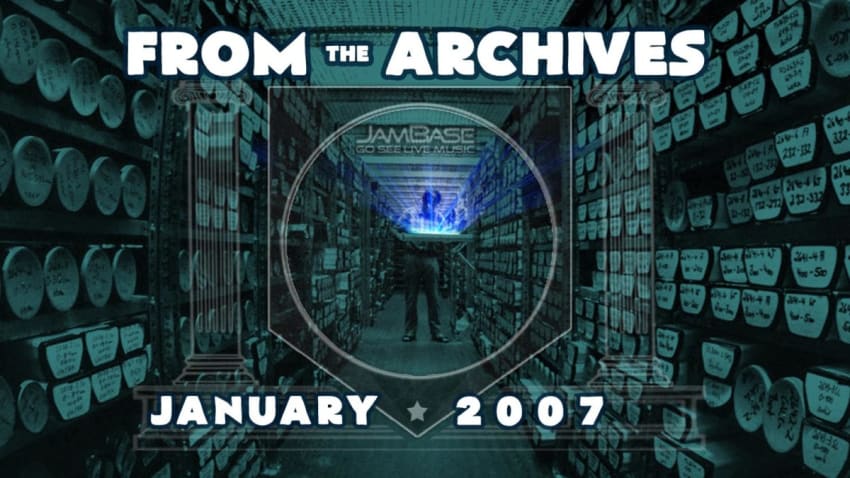THE POWER OF LAMONTAGNE’S PAIN
By Team JamBase Jan 9, 2007 • 12:00 am PST

Ray LaMontagne :: 12.16.06 :: Beacon Theater :: New York, NY
 |
A hushed strumming guitar carried by weightless percussion brushes and harmonic pedal steel echoes kept LaMontagne’s storytelling in “Empty” at the center of attention. The arrangement has a momentum that is poetically and technically balanced. The melody is sung effortlessly in proportion over the slow harmonic changes of his guitar and steadily cruises, while delivering images nothing short of hypnotic.
Whispers from the crowd imitating the breathy storyteller on stage never reached a volume that interfered with the performance. Most of the set’s seventeen songs reached their pinnacle by way of formulated emotional dynamics. His attention to detail is magnificent.
 |
Rather than place the listener at a distance, the literary settings of LaMontagne’s lyrics frequently evoke the situation from which they were born. In the vulnerable and isolated “Burn,” LaMontagne is emotionally stagnant from the loss of love, reaching out for companionship, singing, “Oh mama don’t walk away. I’m a god damn soldier. I’m so lonesome without you. I will stand here and burn in my skin.”
In a provocative and elicit reading of “Jolene,” LaMontagne was deliberate and honest. With its chronic refrain of “Still don’t know what love means” the song ends without an emotional resolution. LaMontagne is not cured of his hardships.
 |
There is a great disparity between the melancholy mood of “Gone Away” and the bold “Hold You In My Arms.” They lay in stark contrast to one another yet lie back to back in the set list. The lyrical arpeggios of “Gone Away” contrasts the sadness that dominants the main storyline. “Hold you In My Arms,” with its pronounced strumming and tight playing, revived the hopelessness of the former. “Hold You In my Arms,” perhaps LaMontagne’s most confident display, provides the listener with words to live by.
Fleeting confidence is gathered and transformed in “Shelter” and “Three More Days,” where, for the first time all night, there were no lingering doubts. Strengthened by horns, “Three More Days” was fresh and exciting. LaMontagne’s voice stretched out the last chorus. His ability to sing the same phrase over and over in different ways reveals true beauty and creativity.
Ray LaMontagne’s musical program spanned the full spectrum of human emotions. From arousing, pleasurable moments to the lowest, most desperate times, LaMontagne’s music finds and delivers truths about the human condition with poetic omniscience.
JamBase | New York
Go See Live Music!
